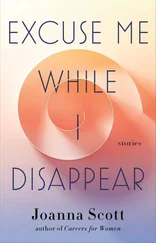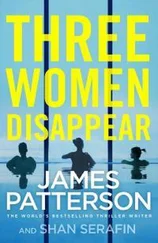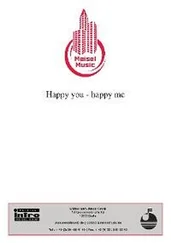“It’s a complicated question. For the time being, my only thought is that one should try not to say anything stupid.”
Thorkild nods approvingly. It would be impossible to articulate his creed more precisely.
They are like three peas in a pod. The Halling family tone of voice, the conventional, frosty self-righteousness, the cultivated hostility that they’ve thrown in my face for twenty years.
What am I doing here? Why in the world have I agreed to be present at their family’s private party?
Frederik eats quickly and then heads back to the basement. The rest of us follow, and we see that he’s dug all the way through to my in-laws’ first dining table and chairs.
“I remembered this furniture being somewhat different,” I say. “I don’t think we can use it after all. But thank you so much for the offer.”
“Do take it,” Thorkild insists. “Then you can keep it until you find something better.”
And Frederik’s too ill to twig anything at all. He’s got his hands on his hips, just like his father. “Yes, we could keep it till we find something else.”
We go back upstairs with three philosophy books that Thorkild found for Frederik in the storeroom, including one by a contemporary Spanish philosopher. Then we sit down in the living room. I’m aching to get out of here.
Thorkild says, “Speaking of Spanish, Vibeke and I were wondering if there was something we could do for Niklas.”
I didn’t see that coming!
Niklas got Ds in both written and oral Spanish, but all his other grades have been good. When Frederik was a boy, Vibeke and Thorkild coached him to a top GPA; now that their son has failed so utterly, Niklas is evidently supposed to be their next golden boy. And that means accusing me of being unable to raise my own son.
Vibeke says, “Maybe Niklas could use a little peace and quiet, what with the moving and all. Maybe it’d be good for him to live someplace else for a few days.”
I fly out of my chair. “Stop it now! How many attacks do I have to sit here and listen to before the two of you will let it rest?”
Vibeke looks frightened again. “Is it because of the cake?” she mumbles. “I was wondering if it was wrong of me to buy it, but then—”
“It’s not because of the cake, God damn it! Can’t you ever listen to what I say?”
I’m on my way out the door. “And Frederik! Couldn’t you for once in your life stand up for me when your mother runs me down?”
My cell phone rings. I glance at the display and find myself saying, “It’s Bernard.”
Everyone grows quiet. As if that’s what we’ve been waiting for all along. As if what we thought were life-or-death struggles were just minor distractions till we heard from Bernard again.
My fingers fumble with the button.
“Hello, Bernard.”
I can hear a faint wind, and his voice in the distance. “Do you have a few minutes?”
“Yes.”
No one moves. The others are seated; I’m standing up.
“Can you talk right now?”
“Yes.”
“I’m in Aumessas with Lærke.”
“You’re in France ?”
Surprise in the others’ faces.
“Yes.”
“But we just saw you at the office.”
“After you left, I canceled all my appointments. Lærke and I have gone to Aumessas for four days.”
“Is it your anniversary?”
“No.”
He sounds so serious, so different from how he’s sounded to me before. I have the sense that something terrible’s happened.
“Is it Lærke?”
Frederik and my in-laws are still staring at me. But they’re far away now. An old faded photo I quickly flip past in the pile.
Again his grave voice.
“It’s not going so well down here. Not as well as it usually does … It made a deep impression on me, seeing you again at our meeting.”
I don’t look at the family for long. I’ve got to get out of here. I run out into the hallway; I’ll have to come up with some story for them later. But that isn’t far enough away. I run out to the driveway. And then farther, out onto the street.
They shouldn’t be able to see me anymore from the house; I check. What should I tell them when I return? I’ll find something — and otherwise screw it.
“What’s going on there?” Bernard asks. “Should I not have called?”
“Yes. Yes. You should have called. Nothing’s going on. I went outside.”
We fall silent.
“But I was just so … at the meeting,” I say. “After all, we didn’t do anything.”
“You were good. You’re trying! We’re both trying. That’s something we have in common. And you seemed to me lovelier than ever.”
There are a thousand things I ought to say. I can find no words.
Again he says, “Was it wrong of me to call?”
“Not at all.” I’m still tongue-tied. All I can manage is “Bernard.” It’s a new way for me to say his name. “Bernard.” I’m getting used to saying it like this. From now on, I’ll say it this way often. “Where are you?”
“In Aumessas.”
“Yes, but I mean where? What are you looking at right now?”
“I’ve walked a long way from our house. An hour. It’s the first time down here that I’ve needed to be alone. Up a wooded path on the mountainside. There are chestnut and mulberry trees here, and I’m looking out across a valley.”
On Thorkild and Vibeke’s street, the steel half-roof over the bus stop has something of the color of the sidewalk pavement, of the sky.
“I’m looking at a bus stop three houses down the street from my in-laws,” I say. “It looks like rain.”
We laugh. Something within me is shaking free. The little laugh at almost nothing feels so deep and right. It’s falling into place. It’s all falling into place.
“Thank you for calling, Bernard. I’m really glad you called. Really, really glad.”

INTRODUCTION
In the 60 pages that follow, you will find articles addressing one of the most highly debated questions in metaphysics (which is itself one of the most controversial disciplines in 2,000 years of Western philosophy).
Almost every major philosopher has expressed an opinion about how much we decide our own actions ourselves. If everything is predetermined by an almighty God or by the laws of nature, how then can the individual be free? Regardless of whether we conceive of our actions as being immutably arranged by a god, by our genes and upbringing, or by the fundamental physical laws governing the atoms we are comprised of, the essential nature of the question remains unaltered.
Yet the opposition between everything being predetermined and man being master of his own actions is not so simple. Many philosophers do not consider the two ideas to be in conflict at all.
In 1814, the French astronomer Pierre-Simon Laplace imagined a vast intelligence that knew every natural law as well as the precise location of every constituent of the universe, and he wrote that such an intelligence would be able to calculate every event at every juncture in time, past and future.
This thought experiment has been known ever since as Laplace’s demon, and it encapsulates the problem of free will. For someone to act freely, most people would agree that two conditions must be fulfilled:
1. The person must have the possibility of acting differently.
2. The person himself must choose how to act — he cannot merely be the last link in a chain of events that has already been set in motion and that can only occur in one way.
Even if an individual attempts to wrest himself free from his upbringing and the immediate expression of his genes, the impulse to do so must itself come from somewhere. Nothing arises from nothing, for that would violate the very nature of our universe. Every single choice he makes is made in an interaction among countless influences of varying strength — and nothing more. He is in no sense master of the struggle among these influences, so how can one say that he acts freely? Or that it would be just to punish or reward him for what he chooses to do?
Читать дальше
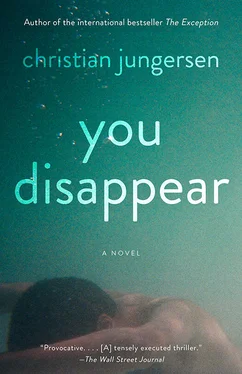

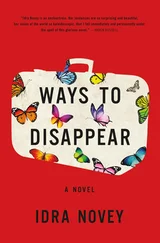
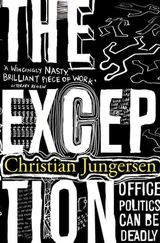
![Ally Carter - [Gallagher Girls 01] I'd Tell You I Love You But Then I'd Have to Kill You](/books/262179/ally-carter-gallagher-girls-01-i-d-tell-you-i-lo-thumb.webp)
